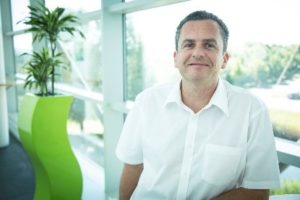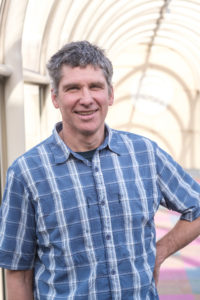Governance
Advisory Board
The Advisory Board provided independent oversight of, and guidance to, the Decadal Climate Forecasting Project Team.

Saul Eslake (Independent Chair – Economist,
Hydro Tasmania Board)
Saul Eslake is Principal of Corinna Economic Advisory, an independent economics consulting business based in Hobart, Tasmania. He is also Vice-Chancellor’s fellow at the University of Tasmania; a non-executive director of Housing Choices Australia Ltd, a not-for-profit provider and manager of affordable housing for disadvantaged people; a non-executive director of Hydro Tasmania, Tasmania’s principal electricity generator; and chairman of Ten Days on the Island, Tasmania’s biennial arts festival. Saul is also a member of the panel of expert advisors to Australia’s Parliamentary Budget Office, which provides independent and non-partisan analysis of the budget cycle, fiscal policy and the financial implications of proposals to members of Australia’s National Parliament.

Adam Scaife (Science Expert – UK Met Office)
Professor Adam Scaife is head of long range prediction at the Met Office in the UK and Professor of Applied Maths at Exeter University. Adam co-chairs the WCRP Grand Challenge on Near Term Climate Prediction and was recently awarded the Copernicus Medal for his research and international collaborations on long range weather forecasting, computer modelling and prediction of climate.

David Karoly (Science Expert, National Environmental Science Program – Earth Systems and Climate Change Hub Leader)
Dr David Karoly is the leader of the Earth Systems and Climate Change Hub in the Australian Government’s National Environmental Science Program, based in CSIRO. He is also an honorary Professor at the University of Melbourne. He is an internationally recognised expert on climate change and climate variability.

Beth Brunoro (First Assistant Secretary Climate Adaption and Resilience Division, Department of Agriculture, Water and the Environment)
Beth currently heads the Climate Adaptation and Resilience Division in the Department of Agriculture, Water and the Environment.
Beth’s responsibilities include oversight of the Commonwealth’s climate science strategy: Climate Science for Australia’s Future, the National Strategy on Environmental Economic Accounting and the new $149m National Environmental Science Program. She is also responsible for delivery of the next State of the Environment Report 2021.
Beth was a senior member of Australia’s delegation to the Paris Climate Conference supporting negotiations for both the Paris agreement and the second commitment period of the Kyoto Protocol. This follows a decade of roles in a range of climate and energy policy for the Australian Government, including oversight of Australia’s emissions projections and target analysis, climate adaptation and science policy.

Andrew Watkins (Climate Application Expert, Bureau of Meteorology)
Dr. Andrew Watkins has worked at the Bureau of Meteorology since 1999, and now leads the Bureau’s Long-range Forecasts team. Prior to the Bureau he worked at the Co-Operative Research Centre for Southern Hemisphere Meteorology at Monash University, researching both decadal climate cycles and ways to improve weather forecast models. He has worked in the Solomon Islands assisting the US NOAA ‘Hurricane Hunter’ aircraft during research into the El Nino-Southern Oscillation (ENSO), as well as in the Antarctic studying the sea ice that influences the Southern Hemisphere’s weather and climate. Andrew has served on several United Nations World Meteorological Organization (WMO) expert teams on climate matters, is a key contributor to WMO statements on El Nino risk, and was previously a co-editor of the annual Bulletin of the American Meteorological Society’s ‘Status of the Global Climate’ reports. Andrew is a firm believer in matching the best weather and climate science to real user needs using great communication and diverse channels.

Brendan Dalton (Chief Information and Data Officer, CSIRO)
Brendan Dalton has been CSIRO’s Chief Information Officer (CIO) since July 2015. As CIO Brendan manages CSIRO’s scientific computing capability which includes one of the largest computational and simulation science teams in Australia, and cutting edge computational and data technology services, all focused on maximising research outcomes.
For more than a decade prior to joining CSIRO, Brendan held Senior Executive and CIO roles with the Australian Government. He has led the design, delivery and successful implementation of several significant technology-enabled government programs working with industry, the innovation and education sectors. He has also held senior policy advising and delivery roles supporting government investment in industry, research and innovation. Brendan has qualifications in technology, management and the humanities. He is a keen eResearcher and has published research on the gold rush era and Australia’s development in the mid-19th century.

Richard Matear (Project leader for Decadal Climate Forecasting Project)
Dr Richard Matear is a Chief Research Scientist in the Climate Science Centre at CSIRO Oceans and Atmosphere. Richard’s research interests involve exploring the role the oceans play in the global climate and carbon systems. His research exploits models and observations to understand the mechanisms driving climate variability and determining how the oceans will respond to climate change. Richard is currently investigating the predictability of the climate system and trying to demonstrate the utility of climate forecasts at the multi-year timescale.

Andreas Schiller (Acting Director of CSIRO Oceans and Atmosphere)
After joining CSIRO in 1995, Dr Schiller pioneered with colleagues at the Bureau of Meteorology the development and implementation of the first coupled ocean-atmosphere model for seasonal climate prediction in Australia (POAMA) which went operational at BoM in 2003. Predictions from this model enable the agricultural sector and other industries susceptible to climate variations to better prepare for climate variability.
Dr Schiller headed CSIRO’s involvement in the initial phase of the BLUElink project, which delivered the first operational ocean forecasting system in the Southern Hemisphere.
From 2009 to 2017 Dr Schiller co-chaired the international GODAE OceanView Science Team. This group of 35+ leading scientists is the international body that coordinates scientific efforts in the rapidly growing area of ocean forecasting and supports the development and operational implementation of physical, biogeochemical and ecosystem ocean forecasting systems.
Until 2017, Dr Schiller chaired the Global Ocean Observing System Regional Alliance in the Indian Ocean (IOGOOS). IOGOOS coordinates and oversees the implementation of the Indian Ocean coastal-to-basin-scale multidisciplinary observing system and supports the development of national ocean monitoring and forecasting capabilities.
Dr Schiller has been Acting Director of O & A since June 2020.

Dr Tony Worby (Chief Executive Officer , Flourishing Oceans, Minderoo Foundation)
Dr Tony Worby commenced at Minderoo in July 2020 and is based in Perth, Western Australia. Prior to this appointment, he was Director of CSIRO’s Oceans and Atmosphere Business Unit. Before that Dr Worby was CEO of the Antarctic Climate and Ecosystems Cooperative Research Centre (2014-11), Deputy Chief Marine at CSIRO (2011-14), and Program Leader for the Australian Antarctic Division’s Ice, Oceans, Atmosphere and Climate research program (2009-11).
Dr Worby completed a PhD studying sea ice physics and the role of Antarctic sea ice in the global climate system at the University of Tasmania (1998) and worked for 20+ years as a research scientist with the Australian Antarctic program. He has authored more than 60 peer-reviewed scientific papers.
He has visited Antarctica 17 times and participated in more than a dozen multi-disciplinary marine science programs in the sea ice zone. Dr Worby has served in an advisory capacity to State and Federal governments, and as co-Chair of the World Climate Research Program’s Cryosphere and Climate committee.
